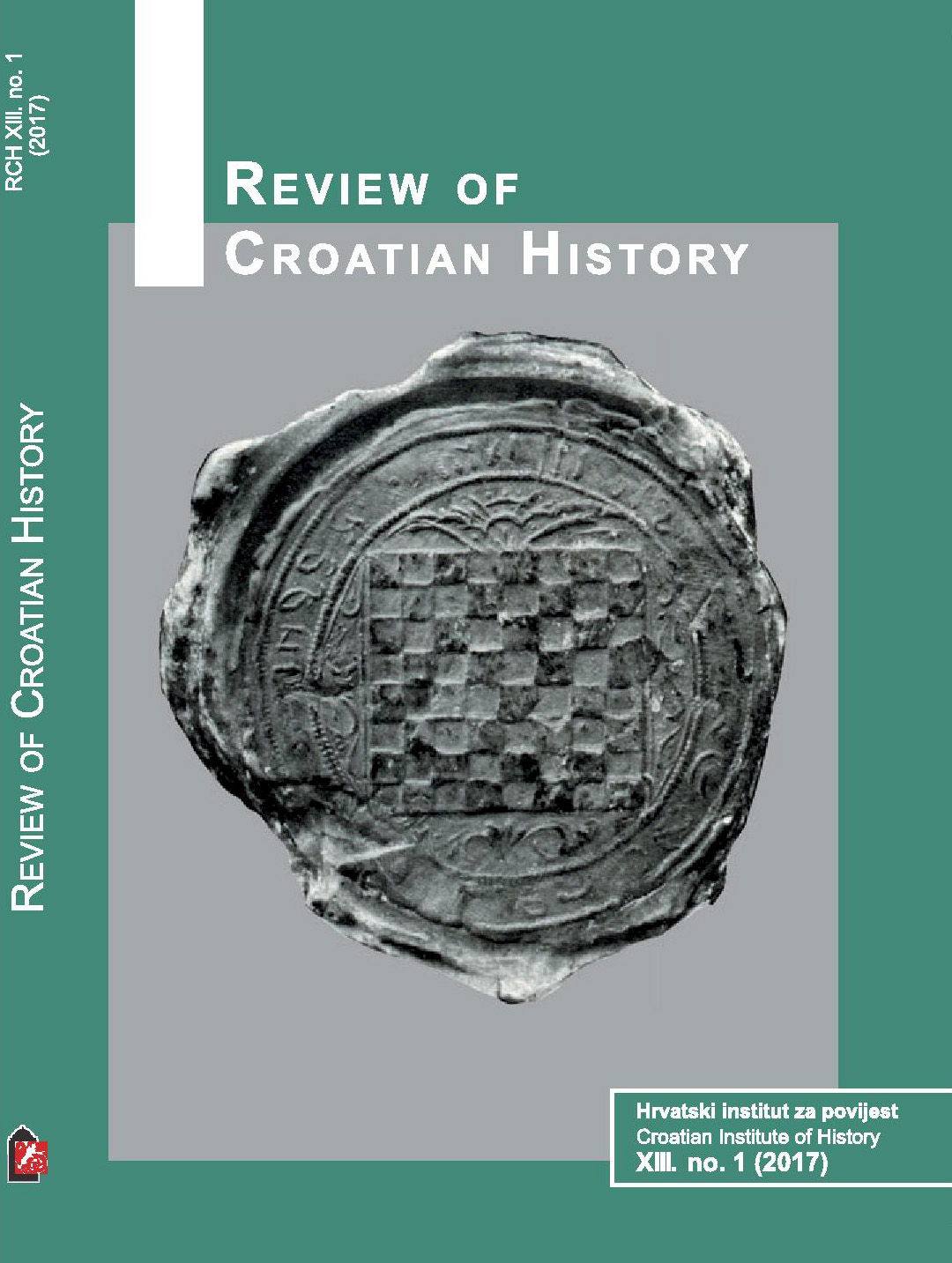DEUTSCHER HISTORIKER ALEXANDER KORB KORRIGIERT EINSEITIGE JUGOSLAWISCHE GESCHICHTSSCHREIBUNG
German historian Alexander Korb corrects biased Yugoslav historiography
Author(s): Alexander Korb, Gojko BorićSubject(s): Military history, WW II and following years (1940 - 1949), Historical revisionism
Published by: Hrvatski institut za povijest
Keywords: Alexander Korb;
Summary/Abstract: „In the Shadow of World War. The Ustasa’s mass violence against Serbs,Jews and Roma in Croatia, 1941 1945“. This is the title of the German first edition of a history book by Alexander Korb which appeared in 2013. The Englishand Italian translations will follow at the end of this year. In an interview with the author he mentions attacks on him by Serb nationalists who labelled him pro-Croatian, whilst at the same time he was awarded a prize by a Serbian cultural institution in Bonn. Dr. Korb is Associate Professor in Modern European History at Leicester University in England and is a specialist in genocide research.His interest in the history of Croatia has accompanied him since the beginning of his studies and as he speaks Czech, it was easier for him to learn the Croatian language. Reviewing the corresponding documents proceeded without problems. In his opinion, the Croatian nationalist Ustasa have been demonised by the Yugoslav historiography. It was a part of the founding myth of communist Yugoslavia that all Yugoslav ethnic groups fought against the occupying forces and their accomplices whilst only a few collaborateur acted against the interests of the people. The truth of the matter is that there was a civil war between 1941 and 1945 and there could be no hint of any unity between the various ethnic groups.The Ustasa movement had also non-fascist role models but in accordance with its self-perception its global outlook corresponded with that of the German and Italian fascists. In this connection, however, the author rejects the frequently misused term used by the communists of „Clero-fascism“. This is because it was the aim of the Ustasa to create a secular and not a religious state.The intention of the Ustasa to forcefully create an ethnically homogenous state failed because of its own shortcomings, because of the 6.3 million inhabitants some two million non-Croats lived in the territory of the Independent Stateof Croatia. Right from the beginning there was never any plan to destroy the Serbs. What did exist though were essays and papers on the creation of an ethnically homogenous Croatian state. Similar intentions existed in other European countries, likewise without any realistic basis. The frequently quoted claim that a third of the Serbs were to be catholicised, another third were to be expelled and the rest were to be murdered is simply not substantiated by any documentary evidence.After the creation of the Independent State of Croatia it took a year before any concessions by the Ustasa regime vis-a-vis the Serbs could be identified. Inits policy vis-a-vis the Jews, the Independent State of Croatia followed its German role model. Meanwhile, several thousand Jews managed to rescue themselve sby fleeing into the Italian zone of influence or into partisan-controlled areas. Protection was also granted through the regime’s willingness to grant„honorary Aryan“status to individuals who had served the Croatian people in one way or another. A small Jewish community in Zagreb survived the war until May, 1945.Relations between the Independent State of Croatia and Italy were for long on a „secret war-like footing“, whilst the German military either didn’t care about or had little regard for Croatian circumstances. However, the Germans were not talking with one voice. Some were supportive, others were critical of Pavelic’s regime. Hitler did not intervene, even though – as the author claims– „the Independent State of Croatia harmed German interests more than it benefited them“.According to Alexander Korb, the latest Yugoslav war opened up old wounds and deepened the rifts from the Second World War. Some symbols of the Ustasa remain part of the mainstream in Croatia. In answer to the question as to whether Croatia could learn from Germany’s coming to terms with the past in view of both countries’ experience with both nationalist and communist regimes, this is not suited in his opinion as an „export article“. Korb literally:„Croatian society is heavily polarised. Were one to recognise the crimes committed by its own side, for many that would feel like admittance of defeat and a political victory for the other side. But therein exactly lies the formula for success: to make a start at casting light on the darker sides of the history of ones own political situation.“
Journal: Review of Croatian History
- Issue Year: XIII/2017
- Issue No: 1
- Page Range: 213-226
- Page Count: 14
- Language: German

